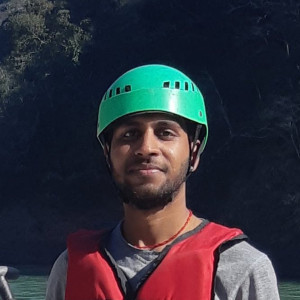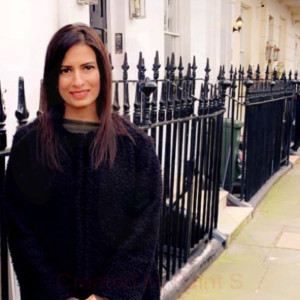Chapters
Could there be a subject more ubiquitous than Geography? It’s a traditional staple of classroom learning. Some students would prefer to sleep through it while others can't get enough of it. But there must be something going on. GCSE Geography recently came back onto the Top-ten list of GCSE subjects.
It could be because our environment is changing so fast. Our weather is more extreme. Long drought periods are changing the earth's landscapes and soil compositions. They're also causing alarming water shortages. Food shortages are a growing problem.
These are all topics GCSE Geography touches on. Who wouldn't want to learn about them? After all, you have to know what the challenge is before you can meet it. And GCSE Geography addresses so many other topics relevant to our current, mutating crises:
- the effects of migration, urbanisation and the resulting megacities
- the economic challenges of dealing with escalating crises
- conservation and sustainability
- economic disparity and social inequality
- challenges in professional environments that affect employment patterns and economic growth
- challenges to resource management: food, water and power
In the age of so-called 'easy GCSE' subjects such as Media Studies and Learning for Life and Work, the fact that more students are choosing GCSE Geography is pleasantly surprising. Maybe it shouldn't be. After all, a 16-year-old became world-famous for being a climate change activist. Today's students will be the most affected by the current climate and economic crises. So let's see what makes GCSE Geography so compelling to them.

Geography GCSE: Reversing the Trend
A survey was taken more than 10 years ago, when the new English Baccalaureate (EBacc) rolled out. Nearly 700 secondary schools in England found that the just-released assessment measurement for schools was affecting pupils’ GCSE choices. The EBacc is an unusual curriculum. It includes English, of course. But successful baccalaureate candidates also sit exams in maths, two sciences, a foreign language and history or geography.
At the same time, the number of pupils taking more traditional subjects such as history and geography was going up. As a result, nearly half of those sitting their GCSEs in 2013 were signing up for the EBacc combination. A mere three years before, that number was just 22%. GCSE Geography thus saw a resurgence in popularity. From one year to the next, over 36 000 more students registered for this course. It was an amazing curriculum comeback after a steady, 20-year decline.
The trend looks set to continue. Statistics show that, on average, more than 10 000 students change GCSE entries for EBacc subjects each year. This shift is profound. GCSE candidates get to choose most of their subjects. The EBacc, by its very nature, compels students to sit exams in academic subjects. The Geography exam saw a marked increase in sign-ups. In the second year EBacc was available, the percentage of students sitting Geography jumped from 26% to 33%.

GCSE Geography Overview
Geography is about the relationships of humans with each other. That's not typically what one thinks of when geography comes to mind, is it? How do different people interact with different places and environments, and with the planet itself? That's the real question. It seems a good thing that this important subject is enjoying a revival. Aren't we increasingly urging young people to become responsible global citizens?
GCSE Geography covers everything from drought to democracy. It’s all about understanding the world around us, both natural and man-made. Of course, physical geography is this curriculum's fundamental component. You'll study the way ecosystems work. Then, you'll go bigger, to specific environments such as rivers and coasts, glaciers and the tectonic plates that underpin it all.
The Human Geography portion covers population and migration. You'll explore the challenges caused by globalisation, urban and rural differences, tourism. And of course, the impacts of climate change.
The skills you'll learn include the basics of geography, such as understanding maps and graphs. You'll also develop a range of transferable skills such as critical thinking, teamwork and communication. That last is particularly relevant because Geography is also now among those subjects that assess writing ability as a grading element.

GCSE Geography: 2022 Changes
Before we go over the GCSE Geography curriculum and exam particulars, let's talk about what was different on this year's exam. COVID is one of the most dramatic and damaging effects of both globalisation and climate change. Now, three years into living with this infernal virus, it still impacts everyday life. To wit, the 2022 GCSE Geography exam had to undergo some changes.
No fieldwork is perhaps the biggest takeoff from past exams. This year's students missed out on formulating an enquiry question. The did not gather and analyse data. They wrote no reports about their findings. Likewise, all of the fieldwork questions had been removed from the exam.
Instead, the exam boards introduced a new optionality for Paper 2. It presented learners with three different segments. They had to answer all of the questions in the first segment. After that, they got to choose either one of the two presented options to respond to at length. It wasn't too difficult. They'd covered the topics in their GCSE Geography curriculum.
Advance information papers are some of the best tools for GCSE revision. They give you an exam overview and hints about how exams will be marked. Even if you don't look at any past papers or marking schemes, Advance Information papers can steer you to the right revision resources. But then, why wouldn't you use past papers and marking schemes?
Whether these exam changes will persist for next year's exam season remains to be seen. That decision depends on a number of factors. We might see a COVID resurgence or a different viral outbreak. Perhaps the Department for Education's budget will have no funds to create and produce updated materials. Or they might simply decide that the optionality is good enough, going forward. They might scratch the research component altogether. We'll just have to wait and see.

The GCSE Geography Curriculum
How do you engage with nature? Do you prefer urban landscapes or can you not wait to head over to your favourite green space? These are the points addressed at the start of GCSE Geography's curriculum. The first study unit concerns our environment and how we interact with it.
It's hard to believe that the ground we stand on is constantly shifting. Our planet is very dynamic. Tectonic plates grind up against one another and mountains grow, albeit so slowly that you can't watch it happen. Our seas are masses of advancing and retreating tides. They impact our climate and everything else in our environment. And beneath it all churn boiling, searing masses of lava that might erupt at any time.
Now properly grounded, we turn our attention to ecosystems. How much diversity is there in rainforests? How devastating is deforestation to those populations? And what is deforestation's greater environmental impact? With a clear understanding of those issues, you're free to explore either a warm or cold region. Do you prefer the scorching desert or the frozen tundra?
Study Unit 2 takes us back to the city where, reportedly, more and more people choose to live. What do you think of all that construction? Do you think it is environmentally impactful? Why do you think so many people want to live in major population centres?
You'll consider these questions as you explore topics related to urban population concerns. Sustainability and conservation are two prominent themes you'll discuss, particularly water conservation. You'll also investigate how urban changes create inequality. And you'll delve into urban planning particulars. Some aspects of such include managing growth, maintaining infrastructure and providing services.
GCSE Geography is brilliant at tying economics to urban studies. Historically, people relocated to urban centres to pursue a career. However, there are only so many jobs to be had. And so many homes. And so much food. And so many services like education and healthcare. Balancing all of these factors and managing resources is one of governments' biggest challenges.
Unit 3 would normally consist of fieldwork. However, as noted above, that initiative has been replaced. Unit 4 covers all of the elements typically associated with geography. Those include cartography, numeracy and literacy. You'll also learn how to formulate an enquiry.
How to Revise for GCSE Geography Exams
Each year, thousands of students decide that GCSE Geography will feature in their Key Stage 4 course load. Are you among that number? Great! As you surely know, any job worth doing is worth doing well. You can start by following these tips to master the curriculum and ace your exam.
First, if there is an Advance Paper to be had, read it. As mentioned above, it will give you valuable information about your exam. Next, download and print past papers, marking schemes and examiner reports from your examination board's website. Set the first two papers aside; go over the examiner report with a fine-toothed comb. This document contains a trove of valuable information that will guide your exam revision efforts.
After exams and after every paper is marked, the examiners go back over the students' efforts to compile statistics. What could students have done better? Where were their lags? They then compile those data into a report. In it, you'll learn how to improve your exam performance by reading about previous students' missteps and omissions. The examiners also make recommendations for what future students should do to turn in a better performance.
Let these recommendations guide your exam revision efforts. If this report states students didn't fully address a particular question, make a note to give special focus to that question's topic. If the examiner report recommends students should write more extensively about a certain issue, make it a point to master everything you can about that issue.
The surest path to earning high marks on your exam is knowing what's expected of you. And then delivering on those expectations. The examiner report tells you, in plain English, what's expected of you. You only need to follow their guidance.
Of course, this doesn't absolve you from revising every aspect of GCSE Geography. You'll still have to set up a revision schedule, find effective revision tools and take mock exams - that's a good use of those past papers. In this sense, GCSE Geography is just like every other GCSE subject. You have to deploy the best revision strategies to earn top marks.

GCSE Geography: Personal Impact
Today's trend, a fundamental part of GCSE Geography, is to ask: ‘What am I going to do with what I've just learned?’ The examining bodies pose the question more formally. "This curriculum asks pupils to consider how they can contribute to a sustainable and inclusive environment". You might, for example, ask what impact your consumer decisions have on people’s lives in other parts of the world. Or you might consider how your activities and consumer choices contribute to rising CO2 levels.
This practical approach to learning about the environment can also work the other way; namely to support the scientific community. Scientists are increasingly basing their research on data school students collect. They use those ‘citizen science’ projects to explore humanity’s impact on the planet.
For these initiatives, school students' collected data are adapted to formal, academically-designed experiments. They may draw on student-collected data in subjects like biology and the environmental studies element of geography. Pupils are fascinated that their first scientific forays weigh so heavily in academic research. These learners can examine abstract concepts by undertaking real-world experiments, increasing their engagement with the subject.
For example, the Open Air Laboratories (OPAL) project is a science initiative that runs surveys across the UK. Their aim is to learn more about the state of our environment. OPAL offers specific surveys schools may take part in. The initiative entails supporting teachers’ resources and ways children can examine their local environment. That includes monitoring the soil's health indicators, air quality and how our actions affect our climate. Citizen science can make a subject like geography feel truly relevant for students. Maybe that's why students are signing up for GCSE Geography in droves.















